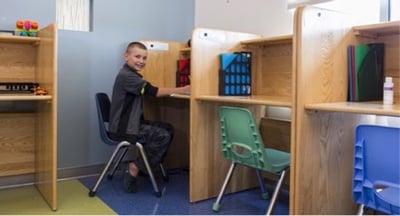- Doctors & Departments
-
Conditions & Advice
- Overview
- Conditions and Symptoms
- Symptom Checker
- Parent Resources
- The Connection Journey
- Calm A Crying Baby
- Sports Articles
- Dosage Tables
- Baby Guide
-
Your Visit
- Overview
- Prepare for Your Visit
- Your Overnight Stay
- Send a Cheer Card
- Family and Patient Resources
- Patient Cost Estimate
- Insurance and Financial Resources
- Online Bill Pay
- Medical Records
- Policies and Procedures
- We Ask Because We Care
Click to find the locations nearest youFind locations by region
See all locations -
Community
- Overview
- Addressing the Youth Mental Health Crisis
- Calendar of Events
- Child Health Advocacy
- Community Health
- Community Partners
- Corporate Relations
- Global Health
- Patient Advocacy
- Patient Stories
- Pediatric Affiliations
- Support Children’s Colorado
- Specialty Outreach Clinics
Your Support Matters
Upcoming Events
Mental Health Town Hall
Tuesday, April 23, 2024Join Children’s Hospital Colorado pediatric experts for a virtual...
-
Research & Innovation
- Overview
- Pediatric Clinical Trials
- Q: Pediatric Health Advances
- Discoveries and Milestones
- Training and Internships
- Academic Affiliation
- Investigator Resources
- Funding Opportunities
- Center For Innovation
- Support Our Research
- Research Areas

It starts with a Q:
For the latest cutting-edge research, innovative collaborations and remarkable discoveries in child health, read stories from across all our areas of study in Q: Advances and Answers in Pediatric Health.


Parent Toolkit: Managing Your Child's Medical Illness at School

School is not only a place for learning, but also a place where your child makes friends and has fun. Doing well at school helps your child develop self-confidence and skills for managing social situations. However, some children with medical conditions may have difficulty managing their medical needs while going to school. Parents and school personnel, including teachers, school counselors and learning specialists, can work together to identify any concerns early on and provide support.
What challenges might my child face at school?
Emotional health: Watch for signs of struggle in school: refusing to go to school or do homework, not wanting to spend time with friends, increased worry about schoolwork or increased moodiness at school.

Attention: Going to school while feeling sick or tired can make it hard for your child to pay attention and learn.
Keeping up: Children with medical conditions may miss school because of appointments or hospitalizations. These interruptions can cause your child to get behind on schoolwork and may affect his or her grades.
Making and keeping friends: It may be hard to make and keep friends, especially if your child often misses school due to medical appointments or hospitalizations.
Talking about illness: For some children and adolescents, it may also be stressful to talk about their medical condition with friends and teachers. Your child may not know what to say or how much information to give their friends or teachers about his or her health.
What can I do to help?
Talk with your child’s teacher: Communicate regularly with your child’s teacher to stay informed on how your child is doing with learning and social relationships.
Keep in touch with the school nurse: Communication with school nurses is also important. Tell the nurse about your child’s medical condition, including any medication to be given at school. Nurses may also serve as a point person between the school staff and your family, particularly when your child needs help with medical care.
Get extra support: School counselors, school psychologists, and social workers can assist with strengthening social skills, managing medical issues within the school setting or learning basic coping strategies (for example, stress or pain management skills).
Seek out extra help: It may be helpful to request a learning evaluation for your child if you think the challenges of your child’s medical condition may be associated with a particular learning problem. You may want to talk with your child’s classroom teacher, a special education teacher, school counselor or the principal.
Consult with your child’s medical team. Members of your child’s medical team (such as nurses, social workers or pediatric psychologists) can work with you, your child and the school personnel to address any concerns that you have about your child’s illness within the school setting.
What can I do at home?
Stay on schedule. A predictable, consistent schedule helps children keep their mood and behavior positive. Keep regular sleep and wake times whenever possible, and have children attend school as regularly as they can, even if they are feeling a little tired or have minor symptoms. Consistent school attendance helps kids keep up with their academic work and social relationships.

Develop a consistent routine of medical care. Consistency will help your child to do treatments each day to help stay as healthy as he or she can be in order to attend school. Posting a chart that lists all medications for the day can be helpful. For other ideas, please refer to the adherence handout.
Keep consistent limits, rules, and expectations about your child’s behavior, even when he or she is managing medical issues. Children learn how to make positive choices when they are reinforced and praised for those positive choices. It is most helpful to use these behavioral strategies consistently both at home and at school. For more ideas, please review the behavior management handout.
Create a balance between school, medical cares and fun. Make sure your child has time to participate in social activities and to do the things he or she enjoys.
Take time to check-in with your child often. Ask your child about how school is going so you can strengthen communication skills and learn about any difficulties your child is experiencing early on.
What are IEPs and 504s?
Schools can develop Individualized Education Programs (IEPs) for a child after a learning evaluation or if he or she has a diagnosed disability that affects learning. IEPs give children specialized support to help them succeed at school, including one-on-one help from a reading specialist or occupational therapist, as well as changes to the curriculum like shortened assignments or extra time to complete schoolwork. These services may be offered in the primary classroom or with another teacher who specializes in working with children with disabilities.
504 plans are developed specifically for students who have a disability, such as a chronic medical illness. These plans do not provide specialized instruction but do offer other accommodations specific to the way your child’s illness affects school. These accommodations may allow a greater number of excused absences for medical appointments or flexibility in daily schedules to allow for visits to the nurse for medications or as needed, or just allow your child to visit the restroom or eat snacks any time of day.
Additional resources
Ask your care team about these additional resources at Children’s Hospital Colorado:
- Pediatric psychologist
- Audiology, Speech and Learning Program
- Medical Day Treatment Program
- Children's Colorado KidStreet, Aurora
Family Resource Assistance
Our Family Resource Liaisons are master’s level clinicians who are available to help individuals and families navigate the mental healthcare system by providing contact information for mental health resources in your community.
Family Resource Liaisons are available by phone at 720-777-4978, Monday - Friday, 8 a.m. - 6 p.m.
Check out our Parent Toolkit to get more resources for maximizing your child’s health.



 720-777-0123
720-777-0123



